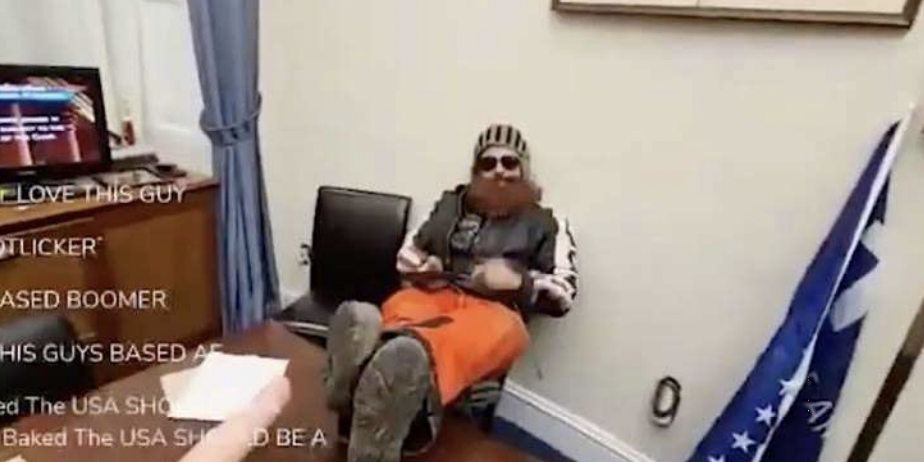
The US Department of Justice.
- A Capitol riot defendant chose to represent himself in a bond hearing, despite the judge's warnings.
- Brandon Fellows on Tuesday admitted to multiple criminal offenses while under cross examination.
- A federal judge in return, denied Fellow's request to reconsider his detention status.
A Capitol riot defendant who decided to represent himself in his most recent bond hearing not only failed to win his release, but also likely admitted to two new felonies in the process, a federal judge said on Tuesday.
Brandon Fellows faces a litany of charges stemming from his participation in the January 6 Capitol attack, including a felony count of obstructing an official proceeding. Federal prosecutors allege Fellows entered the Capitol through a broken window and smoked marijuana in Oregon Sen. Jeff Merkley's office during the insurrection.
Despite a strenuous warning from US District Judge Trevor McFadden ahead of Tuesday's hearing, Fellows decided to take the stand, where he admitted to additional crimes stemming from his time during the riot, as well as a separate criminal offense in the aftermath.
The man from Albany, New York, was initially granted pretrial release, but found himself back in custody in June following a series of violations, including a missed a court-ordered mental-health evaluation. Prosecutors allege that during his brief stint of freedom, Fellows also called a probation officer's mother and put a judge's wife's number down as his own when a court clerk attempted to contact him about allegations that he was harassing a former girlfriend.
After Fellows requested the opportunity to represent himself pro se in the case last month, McFadden granted the defendant's request, despite warning him that his lack of formal law training could have negative consequences on his case. Fellows told the court that he had spent two weeks studying in DC Jail's law library and felt confident in his "maverick decisions," CBS affiliate WUSA reported.

The US Department of Justice.
During Tuesday's hearing, in which Fellows attempted to argue that his bond status should be reconsidered, the defendant inadvertently admitted to considering another possible crime. Fellows recounted a conversation he had with his public defender, in which he asked if he should contact McFadden's family as a way to get the judge disqualified from his case, WUSA reported. He also reportedly told his former attorney about a time he previously put the phone number of a judge's wife down as his emergency contact so he could get a new judge assigned to his case, which worked.
Fellows told the court that his public defender told him doing so is illegal and would land him in jail for even longer.
"When I'm worried, I don't make the most understandable decisions," Fellows explained, according to WUSA.
Fellows' listed public defender did not immediately respond to Insider's request for comment.
When Assistant US Attorney Mona Furst cross-examined Fellows while under oath, the defendant quickly admitted to climbing into the Capitol through a broken window without permission from authorities. He also admitted to previously using a judge's wife's phone number to get a new judge in a past case.
The Judge McFadden denied Fellows' request to reconsider his status, and ordered him back to DC jail.
"You've admitted to incredible lapses of judgment here on the stand, not least of which was seeking to disqualify a New York state judge," McFadden said, according to WUSA reporter Jordan Fischer. "You've admitted to obstruction of justice in that case, and you've admitted to what was probably obstruction in this case in trying to have me disqualified ..."
"You've engaged in a pattern of behaviors that shows contempt for the criminal justice system, and I just have no confidence that you will follow my orders if I release you," he added.
Dit artikel is oorspronkelijk verschenen op z24.nl